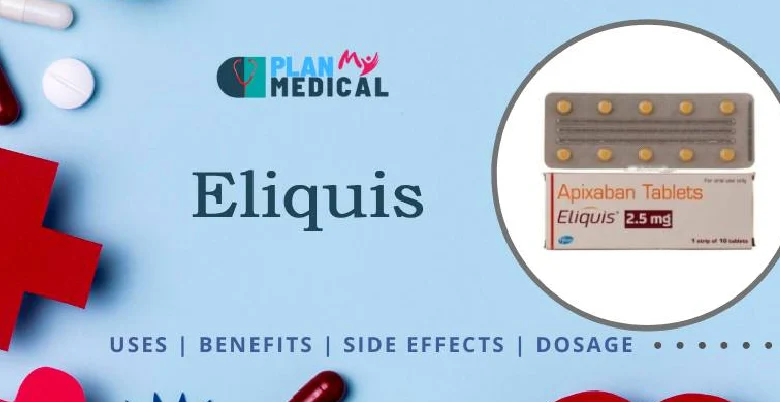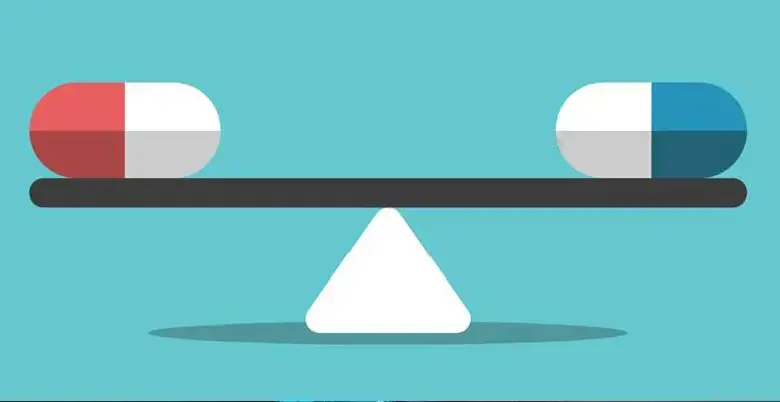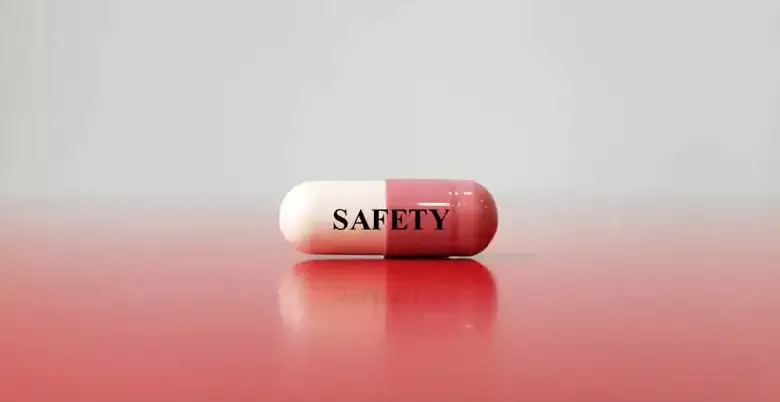Eliquis 2.5 mg is a frequently prescribed anticoagulation therapy drug that aims to lower the risk of blood clots and stroke in people with particular medical conditions. The medication’s active component, apixaban, belongs to the DOAC class of direct oral anticoagulants, which are renowned for their efficiency and practicality in the treatment of anticoagulation.

Patients with atrial fibrillation who do not have a heart valve issue are frequently prescribed Eliquis 2.5 mg because it significantly lowers their risk of stroke and systemic embolism brought on by blood clots.
It is also recommended for patients who have had hip or knee replacement surgery to prevent deep vein thrombosis (DVT) and pulmonary embolism (PE).
Read more : Zandu Balm
The recommended dosage for atrial fibrillation is 5 mg taken orally twice daily, though some patients may be given a lower dose of 2.5 mg. A clotting factor called factor Xa is specifically inhibited by apixaban, preventing abnormal clot formation in the circulatory system.
Here you can also check the – Abevia N Tablet
Compared to older drugs like warfarin, which necessitate frequent monitoring and dose adjustments, Eliquis offers a more direct and focused approach to anticoagulation. Eliquis users must follow the recommended course of treatment exactly and schedule regular check-ups with their doctor.
Eliquis 2.5 mg Overview

- Atrial Fibrillation (AFib)
- Prevention of Recurrent DVT and PE
- Prevention of Blood Clots after Hip or Knee Replacement Surgery
- Deep Vein Thrombosis (DVT) and Pulmonary Embolism (PE)
- Reduction of Risk in Non-Valvular Atrial Fibrillation with Renal Impairment
Eliquis 2.5 mg Cost in India

The cost of medication can change day to day, Currently the price range for Eliquis 2.5 mg is 370 to 450 Rupees.
Benefits and Side Effects of Eliquis 2.5 mg
Benefits
- Eliquis acts as an anticoagulant, lowering the risk of blood clots and strokes in people with certain medical conditions by inhibiting certain clotting factors in the blood.
- Eliquis is a safer alternative to traditional anticoagulants.
- Eliquis is also used to treat and prevent deep vein thrombosis (DVT) and pulmonary embolism (PE), two conditions that are characterized by the development of blood clots in the veins, most frequently in the legs.
- Eliquis is more practical than older anticoagulants because it can be taken orally as a tablet and does not need to be monitored or adjusted frequently.
Side Effects
Eliquis’ most frequent adverse effect is bleeding, which can range in severity from minor bruising to more serious bleeding events. If you notice any unusual bleeding symptoms, such as recurrent nosebleeds, prolonged bleeding from cuts, blood in your urine or stools, or heavy menstrual bleeding, it’s critical to get medical help right away.
Read also : Combiflam Syrup
- Eliquis may make it more likely for people to bruise easily, which could lead to more bruises or skin discoloration.
- Nausea and Fatigue: While taking Eliquis, some people may experience minor adverse reactions like nausea and fatigue.
- The possibility of allergic reactions to Eliquis exists, despite their rarity. If you experience symptoms like a rash, itching, swelling, severe dizziness, or breathing difficulties, you should seek medical help right away.
Composition of Eliquis 2.5 mg

The active component of Eliquis 2.5 mg tablets is apixaban, a factor Xa selective inhibitor. The active ingredient in each Eliquis 2.5 mg tablet is 2.5 mg of apixaban.
You may also like to read – Aceflam P Tablet
The tablets may also include other inactive ingredients, which are used to speed up manufacturing and improve the stability of the drug, in addition to the active ingredient.
Read also about : Betnovate C Cream
These inactive components can change based on the formulation and particular manufacturer. They might contain things like triacetin, lactose monohydrate, microcrystalline cellulose, sodium lauryl sulphate, croscarmellose sodium, and titanium dioxide.
Substitute of Eliquis 2.5 mg
There are several alternative medications that can be used as substitutes for Eliquis 2.5 mg in certain situations. Remember to change the medication only when prescribed by healthcare professional.

- Warfarin
- Xarelto (rivaroxaban)
- Pradaxa (dabigatran)
- Savaysa (edoxaban)
Safety Advice for Eliquis 2.5 mg
Here is some general safety advice:

- Eliquis requires healthcare professionals’ guidance for appropriate dosage, duration, and individual factors for optimal treatment.
- Adhere to Eliquis’ prescribed dosage and consult a doctor before changing or stopping.
- Eliquis increases bleeding risk; discuss medical conditions, bleeding disorders, surgery, and medications with your healthcare provider.
Read more : Levomac 750 Tablet
- Attend doctor-assisted blood tests and check-ups to monitor medication response and effectiveness.
- Inform healthcare professionals about Eliquis usage in emergency situations to effectively manage bleeding.
- Inform your healthcare provider and dentist about Eliquis use during surgery or dental procedures to minimize bleeding risk.
- Inform your healthcare provider of past allergic reactions to Eliquis or its components to avoid taking the medication.
Read also about : Althrocin 250 Tablet
- Discuss Eliquis use with your healthcare provider during pregnancy or breastfeeding to avoid risks to the unborn baby or nursing infant.
- Store Eliquis at room temperature.
- Dispose of expired/unused medication.
